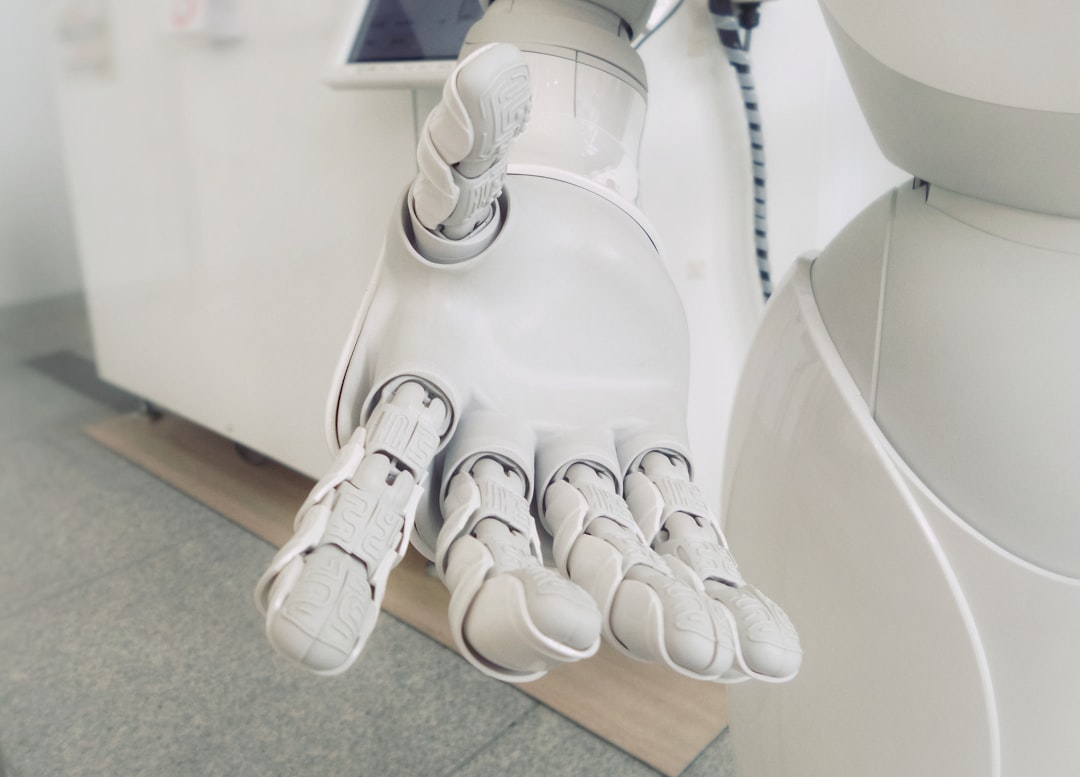Breaking barriers: how artificial intelligence comes to complement human work
Humans and AI are joining forces
We are witnessing how AI is becoming better and better and is being utilized more throughout a lot of different aspects of our everyday lives. Diagnosing disease, translating languages, providing customer service, and now, with the more advanced conversational AI, communicating as if it were a real person, AI is slowly becoming an expert in many human jobs. However, in this article, we will take a look at how artificial intelligence comes to complement human work and how working together, health clinics and patients can establish a much better relationship and communication.
Humans assisting AI
It is no longer uncommon for health clinics to use AI for numerous different tasks. Having an AI on your side gives you a whole new perspective on how to approach patients, perform regular scheduling, and so much more. However, in order to unlock the full potential of AI in healthcare, regular chatbots are simply not enough. A conversational AI that functions thanks to the natural language processing engine can greatly benefit clinics and patients in the healthcare process. In order to fully unlock its potential, however, humans need to assist AI.
In order to fully understand how humans can augment machines, we must take a look at the three important steps that need to be done in order for an AI to be ready for healthcare systems. The three crucial roles that humans need to fulfill when working with a conversational AI for healthcare are:
-
Training,
-
Explaining,
-
Sustaining.
So, let us take a closer look at each of these three roles individually to better understand how humans complement AI work, especially in the field of healthcare.
An AI must be taught and trained first
Although machines are built they are not built so that they can instantly perform their roles flawlessly. Machine learning algorithms require training. Huge training data sets are amassed in order to teach the AI. To be able to understand and handle idiomatic expressions, perform decision-making, and various other tasks, AI needs to be properly trained. This initial work can only be done by a well-trained human team who stands behind AI. Of course, afterward, AI itself can learn and enhance its abilities through discussions and so on. However, the initial training is crucial and it can help AI learn, grow, and never repeat the same mistake again.
When it comes to interactions with humans, especially patients, AI needs to be trained and built for healthcare interactions. Furthermore, human trainers are needed in order to develop AI's personality. In addition to this, complex and subtle human traits are also trained by humans.
Explaining the AI can only be done by a team of humans who built and designed it
To nonexpert users, a natural language processing engine might sound very complex and confusing. Human experts are needed to be able to present and explain a particular AI and how exactly it functions. Evidence-based industries, such as law and medicine in particular require these "explainers". This is another good example of why AI will contribute to increased employment. Simply put, AI creates a lot more jobs even though it might seem like it replaces humans.
Sustaining the AI is an essential role of a dedicated team of humans working with an AI
Once built, AI needs to be sustained and developed. To fully utilize all of the abilities a conversational AI can provide, humans need to work on it, maintain it, and ensure that AI systems are functioning properly, safely, and responsibly.
Protecting the privacy of individual patients is extremely important and a dedicated human team working alongside AI can truly provide a unique, safe, and quick journey for patients in need of healthcare assistance. Let's now take a closer look at how AI actually enhances and boosts human abilities in the world of healthcare.
AI and healthcare - How both clinics and patients can benefit
Communication with patients is becoming increasingly digital and AI can truly enhance this. A conversational AI that is built to focus on healthcare interactions and communication can have meaningful and proper communication with patients. Furthermore, unlike call centers, for example, AI can operate 24/7. This means that patients can have access to their healthcare service providers at any time and get the answers they need right away from the comfort of their own homes. Additionally, patients will be able to schedule, reschedule, check services that a health clinic provides, and so on a lot faster. Health clinics on the other hand will have the ability to increase their outreach and communicate with patients who live in remote areas as well.
Overall, AI in healthcare can be of great assistance to health clinics all over the world. The increased number of patients, long waiting times, and patient dissatisfaction with call centers are all causing health clinics to look for more efficient and innovative solutions.
Once combined with a well-trained, dedicated team of humans who can perform the three roles mentioned above, AI can provide a better and more enjoyable healthcare journey for each patient. AI comes to complement human work in many different ways. It can amplify our cognitive strength, interact and communicate with patients and customers in a completely natural, human-like way that is fast and reliable, and it can embody human skills in order to extend our physical capabilities.
Health clinics around the world can manage more patients, and their appointment management and through personalized, timely, and measurable care, provide patients with a much more efficient and enjoyable experience by effectively managing actions such as scheduling, waiting lists, preventive campaigns, monitoring of chronic patients, and more.
 English
English Español
Español
